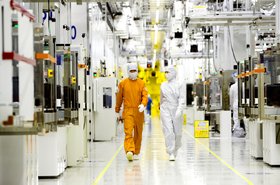Quantum computing firm PsiQuantum has signed a Memorandum of Understanding (MoU) with five universities in Queensland to help support quantum skills.
Under the terms of the agreement, the company will help establish a targeted educational program for the universities and provide opportunities for academic, postgraduate, and undergraduate placements to help attract and retain quantum talent in the country.
PsiQuantum’s staff will have input on the programs and will help to develop study modules, courses, degrees, lectures, and industry training targeting job roles that include quantum applications engineers, mechanical, optical, and electrical engineers; software developers, and technical lab staff.
The five universities that have jointly signed the MoU are the University of Queensland, Griffith University, Queensland University of Technology, the University of Southern Queensland, and the University of the Sunshine Coast.
“Australia and Queensland have been world leaders in the field of quantum computing for decades, and this partnership builds upon that foundation,” said PsiQuantum CEO and co-founder Jeremy O’Brien. “This collaboration will help ensure that Australia is developing the necessary skills and driving research to continue leading this field for decades to come.”
Professor Deborah Terry, vice-chancellor and president of the University of Queensland, added: “Students starting high school this year will graduate into a world with utility-scale quantum computers. We will work with PsiQuantum across the education spectrum – from schools, through technical and further education, to universities – to prepare our students for future jobs in quantum and advanced technologies.”
Founded in 2016, PsiQuantum says its mission is to “build and deploy the world’s first useful quantum computer.” The company, which counts Australia's O’Brien and Terry Rudolph amongst its co-founders, claims to have a “fast and feasible path to large-scale fault-tolerant systems” by using existing technologies, such as high-power cryogenic systems.
Both O’Brien and Rudolph have previously studied at the University of Queensland.
In April 2024, the government of Australia and the state of Queensland announced plans to invest AU$940 million (US$620m) in a quantum computer set to be built by California-based PsiQuantum and housed at a site near Brisbane Airport.
The fault-tolerant quantum computer is expected to be operational by the end of 2027 and will be used to support a number of industries, including renewable energy, minerals and metals, healthcare, and transportation.
According to Australia’s national science agency, CSIRO (Commonwealth Scientific and Industrial Research Organisation), the domestic quantum computing market has an estimated annual revenue of AU$2.5 billion ($1.6bn), with the potential to create 10,000 new jobs in Australia by 2040.






